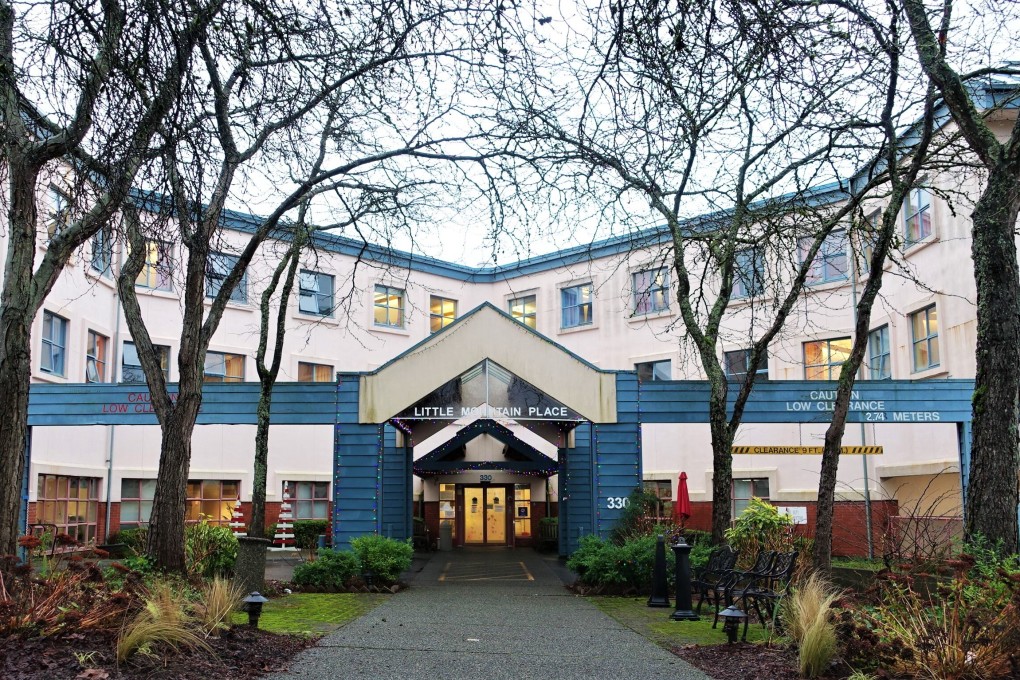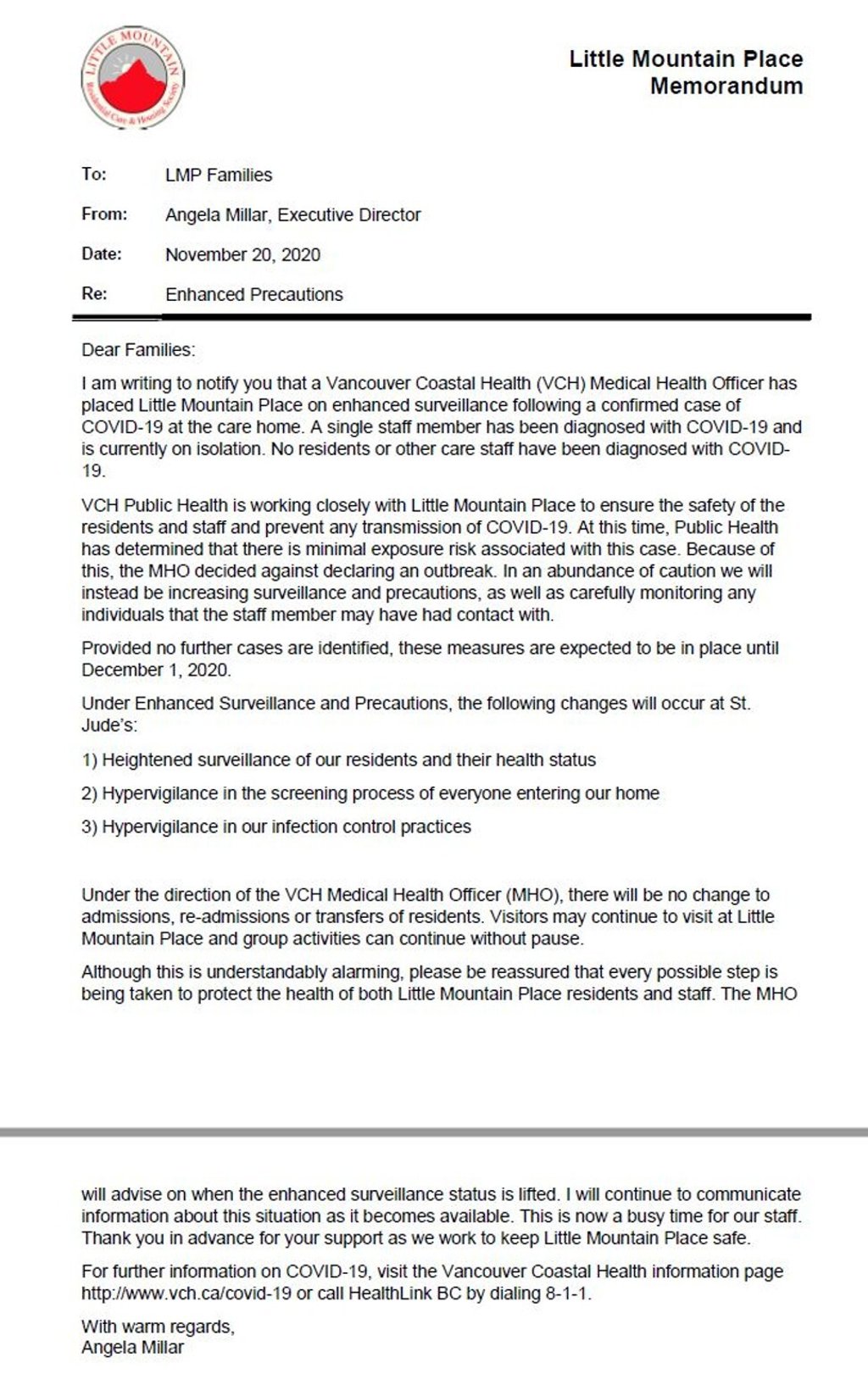Vancouver care home where 41 died saw ‘minimal risk’ when staff member caught coronavirus, letting visits and group activities continue
- Leaked memo shows outbreak protocols were not immediately enforced at Little Mountain Place, scene of British Columbia’s worst outbreak, when worker fell ill
- Some relatives said they were angry about not being contacted for testing, despite visiting the facility after staff member became sick

A Vancouver care home where 41 residents died in British Columbia’s deadliest Covid-19 outbreak initially told relatives there was “minimal” risk when a staff member first tested positive, so it was letting visits and group activities continue “without pause”, a leaked memo reveals.
It was not until two days after the November 20 memo that the first resident tested positive to the virus and an outbreak was officially declared at Little Mountain Place, a facility that caters largely to the city’s Chinese community.
At least 99 of the 114 residents would become infected in the following weeks, at a stunning rate of 87 per cent.
Several relatives who spoke to the South China Morning Post on condition of anonymity said they were angry that outbreak protocols were not immediately implemented when the first staff member fell ill.
But the Vancouver Coastal Health (VCH) authority, that oversees Little Mountain, defended its practice of not declaring an outbreak when only one worker was involved, saying on Wednesday that most of these situations did not result in any further cases being detected.
Two relatives who visited Little Mountain after November 20 said they were disturbed they had not been contacted after the subsequent outbreak declaration; nor were they ever advised to get a Covid-19 test.
